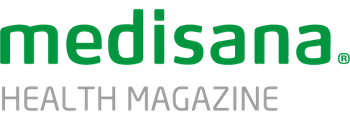Digitalisation of medicine

In his representative surveys, futurologist Horst Opaschowski has observed a veritable explosion in the value people place on their health. 94 percent of Germans now rate health as the most important thing in life. Before the coronavirus crisis, it was only 73 percent.
Nine out of ten Germans now make an effort to stay fit and healthy. After all, about half of ensuring good health can be influenced by lifestyle. This focus on our health is replacing the previously dominant focus on consumption.
A large part of the population has suddenly started to think about themselves and their own lifestyles: people want to live more consciously and more modestly, consume in moderation and take better care of their health. For a large majority, time is suddenly just as valuable as money. This has never happened before, states Opaschowski in an interview with Claudia Ehrenstein, political editor of “Welt-Online“.
E-health in Germany
However, many people are currently not visiting their doctor or are postponing important medical appointments due to fear of catching COVID-19. This is where digital medicine comes in. Several trend researchers have long predicted the breakthrough of telemedicine, and suddenly it has arrived overnight.
What should we understand by telemedicine and what can it achieve? Virtually no other industry is currently buoyed by such a spirit of optimism as the e-health industry. Wherever you look in the media, you will read that the time of the pioneers is upon us. Well, yes, but this will first require thousands of medical practices to be digitally upgraded so that everyone can benefit.
The German Federal Ministry of Health says: “E-Health is a generic term for a wide range of ICT-based applications in which information can be processed electronically and exchanged via secure data connections, thus supporting treatment and care processes for patients.”
Manufacturers of medical products have been active in this field for a while. The VitaDock+ app from medisana enables users to view all their health and vital data at any time, wherever they are. Users can add comments to any value and also view progressions and evaluations, which makes personal health management even more individual. The comment feature turns the VitaDock+ app into a fully-fledged health diary.
Health apps
Centre (Verbraucherzentrale) announced that since October 2020 medical apps which had undergone an official screening procedure were now available on prescription.
Doctors can even prescribe digital health applications to patients, and the costs are covered by their health insurance companies. Doctors and psychotherapists can select apps from the directory of digital health applications. Health apps are offered by health insurance companies, pharmaceutical companies and IT companies.
Service-oriented apps
Here, we need to distinguish between service-oriented apps and medical apps. Service-oriented apps remind you for example, about screening appointments or when to take your medication. You can also use them to check your vaccination status, book or reschedule doctor’s appointments, monitor the course of an illness and manage your health data.
Medical apps
Medical apps are used for other tasks and must be approved as a medical device, which requires having a CE mark. According to the German Federal Institute for Drugs and Medical Devices (Bundesinstitut für Arzneimittel und Medizinprodukte, BfArM) in Bonn, medical devices may only be released onto the market if they meet the basic requirements and have undergone the prescribed conformity assessment procedure.
For example, apps must be able to record important values in the event of illness. The recently launched “Tinnitracks” app helps people suffering from tinnitus to block out the annoying noises in their ears.
There are also apps for certain anxiety disorders, apps for back pain, apps to fight depression and migraine support apps. Medical apps can help diabetics monitor their blood sugar levels, and sufferers of heart disease can also use medical apps to monitor their health.
Every year, 270,000 people suffer strokes in Germany, making this the country’s second highest cause of death. Through monitoring, medical apps can be used to detect cardiovascular problems such as undiscovered cardiac arrhythmias.
Medical apps can also be used to prevent, detect or alleviate illnesses, injuries and disabilities. An important point: there are no uniform quality criteria for health apps. So when you are choosing an app, you should speak to your doctor beforehand. Medical apps are not a replacement for your doctor; they should only be used to optimise your treatment.
The HealthOn information and rating platform lists more than 1,000 health and medical apps for consumers and patients. Individual consumers can find the abundance of health apps almost overwhelming.
Health apps, medical apps and emergency apps
According to a study by the University of Freiburg and the HealthOn rating platform, there are more than 100,000 apps dealing with health or medical topics: a veritable app jungle. According to the German Consumer Advice Centre, some health apps are “very problematic in terms of data protection.”
The German Federal Ministry of Health recommends that before downloading a health app, users should ensure that the app is up-to-date, has been developed by qualified individuals or companies, and that a comprehensive privacy policy is available.
The app from the Technike Krankenkasse, which puts people in contact with medical practices, is exemplary. If you have acute symptoms or for general health tips, you can speak to a doctor via text chat, video chat, email or telephone. The app can also transmit photos and documents, such as X-rays. Users can also get answers to questions about medicines and common diseases.
Now the only question that remains is:what is the public level of acceptance of e-health apps? The Ärzteblatt answers as follows:
“Regarding attitudes towards e-health applications, a current online survey of 1,000 people entitled “Digitisation in the health system” shows that users perceive open and participatory communication networks on health issues as beneficial.
Almost three-quarters of the Germans surveyed in this study would like to see the expansion of online patient counselling. However, personal contact with doctors is still considered essential for serious illnesses.
Another representative study found that increasing numbers of patients are already using digital health tools. The same survey also showed that patients increasingly expect digital tools to become a core component of healthcare.
Patients’ attitudes towards robotics and artificial intelligence in medicine are also positive. A survey of 2,050 people in Germany showed that two-thirds of those surveyed believe that robotics and artificial intelligence would improve medical care overall.”
Conclusion: The advancement of digitisation is the central requirement for healthcare. Health insurance companies can cover the costs if the app has been approved as a health app by the German Federal Institute for Drugs and Medical Devices (BfArM).
Users should ensure that apps have been checked for data security, data protection and functionality. The list of approved apps has been available at https://diga.bfarm.de/de since the beginning of October. Your doctor can prescribe an approved health or medical app, but this must be preceded by a well-founded diagnosis. An increasing number of elderly and chronically ill people will depend on these apps.
Stay healthy!




